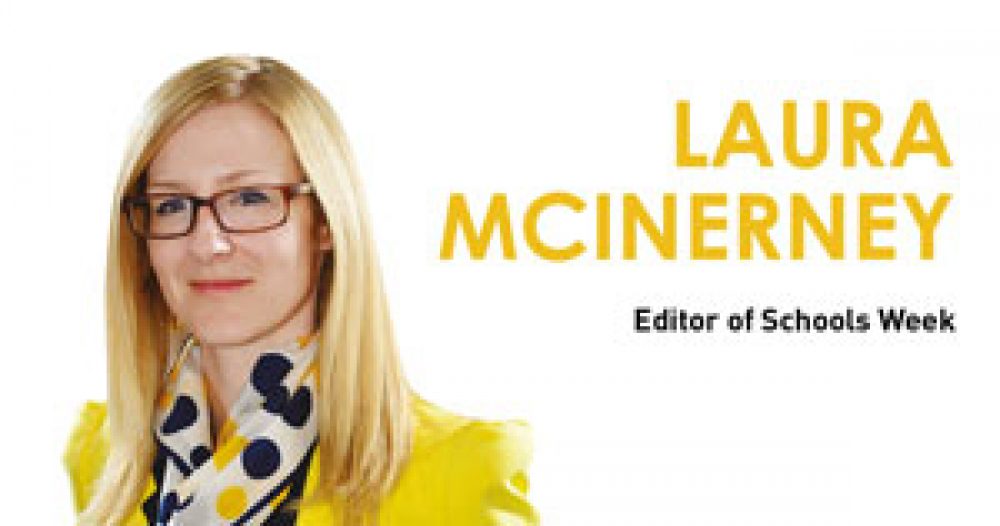While the news headlines have been dominated by how clever (or not) England’s children were revealed to be in this week’s international maths and science league tables, our reporter Jess Staufenberg noticed something different.
She noticed that while England’s pupils may not achieve most highly, they nevertheless enjoy school more than children in many high-performing nations.
Some people will sniff at this. What’s the point of enjoyment if it doesn’t come with great maths skills? But it surely takes a strange nation to eschew happiness among children in favour of a league table ranking that doesn’t actually mean anything. It’s not as if the top-performing country is automatically granted a better economy or immunity from war.
By and large, kids are about as clever now as they were four years ago
But let’s accept the view, for the purpose of this editorial, that our ranking on international league tables is actually telling us something about how smart children really are. If that’s true, we’re in a bit of a pickle. Because while the kids are happy, it turns out they are also plateauing.
Despite growth in maths and science results for the first 15 years of the TIMSS studies, this last round has seen little change.
By and large, kids are about as clever now as they were four years ago.
Ordinarily I wouldn’t think stagnant results were a problem. After all, it could be that our schools are already pumped up to 11, and getting the maximum out of pupils, given the resources provided by the government.
But here’s the thing: the government has spent the past five years reforming everything that moves.
The paper this week is a testament to the flux the schools community still finds itself in.
Here’s just a few of the structural ways we are all over the place:
Free school funding
The way new schools are funded is chaotic. They are paid on the basis of expected numbers and then, as they expand, are penalised in the following year for the pupils they didn’t have. This leads to huge clawbacks at times when schools are trying to move forwards, causing instability in the system.
School commissioners signing off on new free schools without the required expertise
The system of having regional commissioners advised by tiny headteacher boards has always been bonkers, but it’s even more so when you learn that commissioners are making decisions about new special schools and 16-19 schools without any input from people who know these areas well. I understand that the government wants to keep the groups small. No doubt this is because they hope to continue the shroud of secrecy that hangs over them and keeps decisions from the public. But doing so at the detriment of expertise is silly.
Some schools are simply unattractive to academy sponsors – so who is going to look after them?
We have been flagging the issue of “toxic” schools for over a year now. Simply put, these are schools which, for whatever reason, academy sponsors do not want. A lot of the time it is down to PFI building costs. For others, it is location. The stories this week showing schools that no one wants or, in the case of Five Islands school, no one can easily get to, should give the government pause for thought. How, exactly, is it going to get groups to take on these schools? Until there is an answer to that question, the whole system is going to keep shuddering.
These are nerdy technical problems, but they also matter for children’s learning. When leaders are worried about these sorts of issues, they cannot easily get on with the day job of ensuring top-quality learning in each classroom.
It also misses out a plethora of other issues that need to be resolved: teacher shortages, problems with training, the ridiculous primary testing situation, the botched reception testing, the ever-changing GCSE specifications, and so on and so forth.
There will be many theories about the cause of pupil stagnation in maths and science in international tests. Truthfully, we don’t know why it happened. But what I do know is that it’s pretty dispiriting that results haven’t moved, given the flux of the past few years and the holes we now find ourselves in.
Still, at least the children are happy. That counts for something, right?







Why would we expect changes in our position in international league tables? If I saw a large change it would more likely be caused by the choice of population of students sampled.
A lot was made of Northern Ireland doing better than England in the recent maths results but if if you look at the data here http://nces.ed.gov/timss/timss2015/timss2015_table01.asp
you can see that Northern Ireland did not satisfy the guidelines for sample participation rates. In other words the sample of Northern Ireland students was known not to be representative of the population.
Norway is above England but the test is on different aged children to other countries.
Singapore and Hong Kong top the table but they are just cities. Maybe if England put only London kids in for the test we would see a different league table position.
The number of countries taking part in the tests changes each year and all the positions are relative. So if you are exactly in the middle of the performance and more countries take part, your position drops whilst your performance is exactly the same.
So I am not disappointed that we did not move up the TIMSS league table. If we had moved significantly I would say let’s check the data sample. The use of TIMSS in England seems to be just another DfE tool to knock the confidence and professionalism of our teachers. Let’s not use TIMSS to develop education policy, changing the way we do things each year to copy whoever happens to be at the top of tables like these. Instead, let’s get some stability into education policy making and build confidence in a professional workforce.